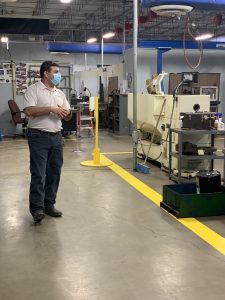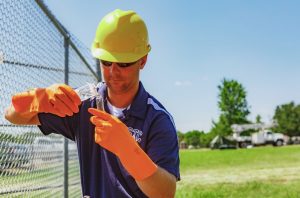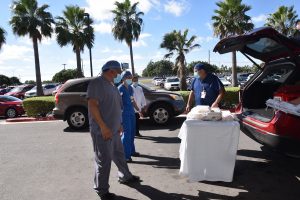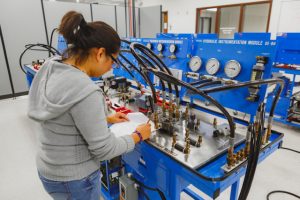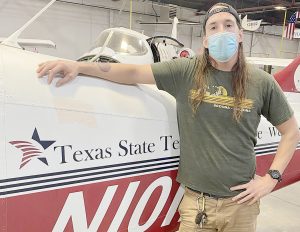(HARLINGEN, Texas) – Texas State Technical College recently welcomed representatives from the Mercedes Independent School District to tour its Automotive Technology and Precision Machining Technology program facilities.
Several Mercedes Academic Academy students are currently enrolled in TSTC’s Dual Enrollment program, which teaches them the skills needed to excel in their careers after high school.
Mercedes Academic Academy principal Juan Garza and school counselor Jessica Pena were joined by TSTC Provost Cledia Hernandez and several other TSTC staff for the socially-distanced tour.
“I have noticed a spark of interest in my Mercedes Academic Academy students,” Garza said. “Some of these students came to this educational setting because of difficulties they were encountering at the regular high school, and now they are enrolled in a Dual Enrollment program and succeeding.”
Student success goes beyond the educators who dedicate themselves to making sure that all students receive the best education possible.
“Even the parents are elated knowing that their child is receiving a chance that they themselves never got — a chance to make a better life for themselves through the industry-based certifications,” Garza said.
Hernandez added that when one family member obtains an education, an entire family can feel the impact.
“When a student completes their degree at TSTC, we help with job placement,” she said. “We are impacting generations.”
Garza reiterated that an education changes more than just the life of the student obtaining their degree.
“We want our high school students to know that their choice to further their education will undoubtedly have a dramatic effect in not only their own future, but for their families as well.”
Dual Enrollment provides high school students the opportunity to take college courses and earn simultaneous college and high school credit in a technical program. College courses are available at some high school campuses through a credentialed instructor, onsite at a TSTC campus, or through a distance learning class taught by a TSTC instructor.
When a student completes their technical pathway while in high school, they can shorten the time it takes to earn a Certificate I, Certificate II or Associate of Applied Science degree at TSTC.
To learn more about Dual Enrollment at TSTC, visit https://www.tstc.edu/admissions/dualenrollment.
